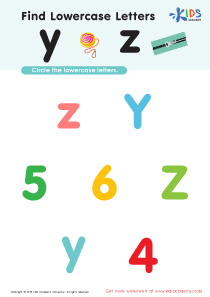Letter recognition Normal Uppercase Letters Worksheets for Ages 4-9
11 filtered results
-
From - To
Enhance your child's literacy skills with our "Letter Recognition Normal Uppercase Letters Worksheets," designed for children ages 4-9. These engaging worksheets support early learners in identifying and mastering uppercase letters, building a solid foundation for reading and writing. Each activity promotes interactive learning through tracing, coloring, and matching exercises, making it fun and effective. Ideal for both classroom and home use, these worksheets cater to different learning styles and abilities, ensuring that every child can thrive. Foster a love for learning and boost your child's confidence as they explore the world of letters! Download now for a comprehensive learning experience!
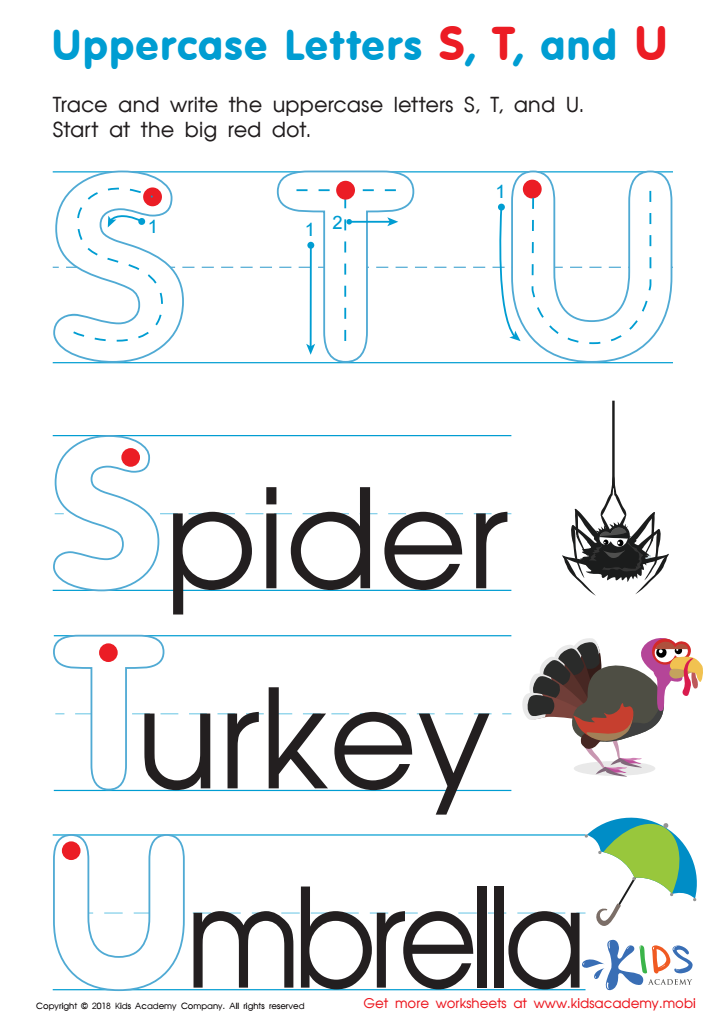

Uppercase Letters S, T, and U Worksheet
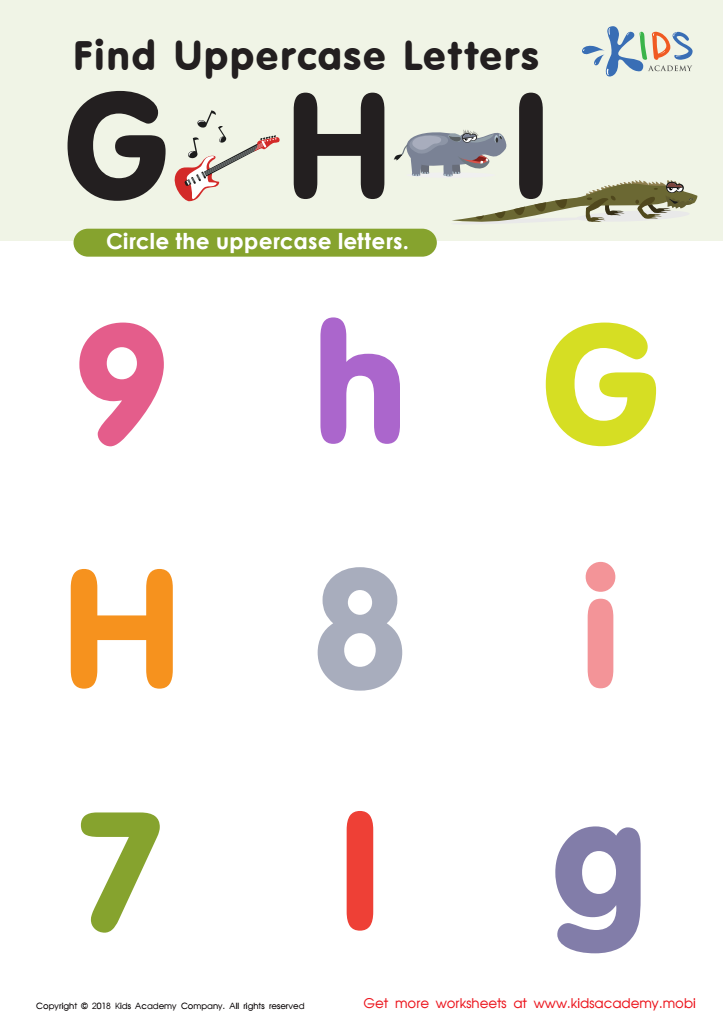

Find Uppercase Letters G, H, and I Worksheet
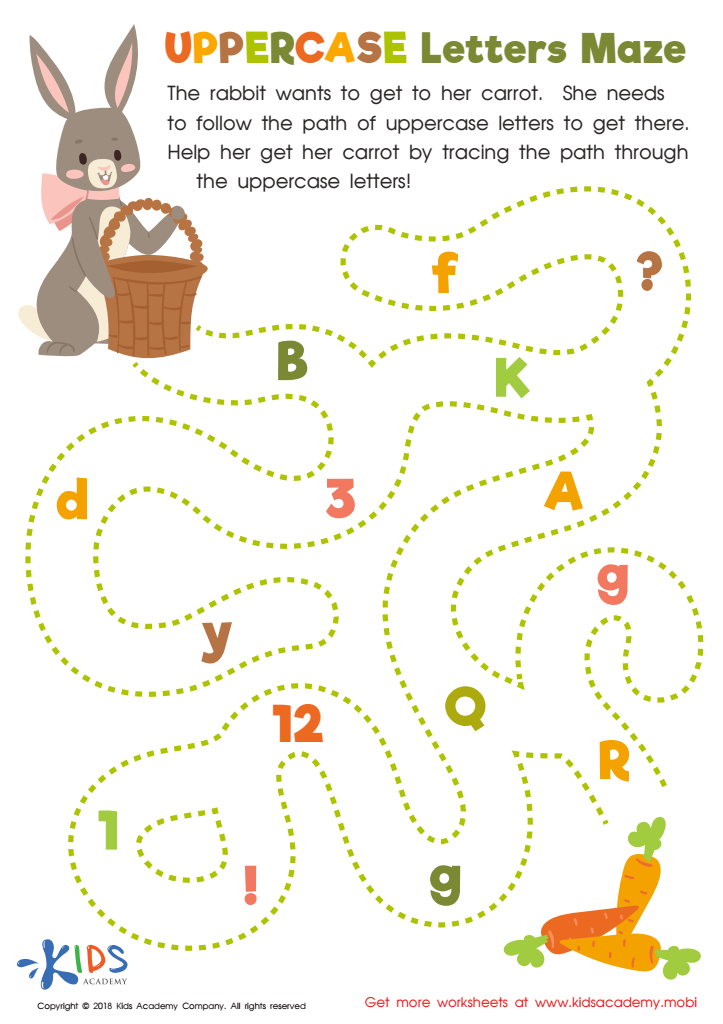

Uppercase Letters Maze Worksheet
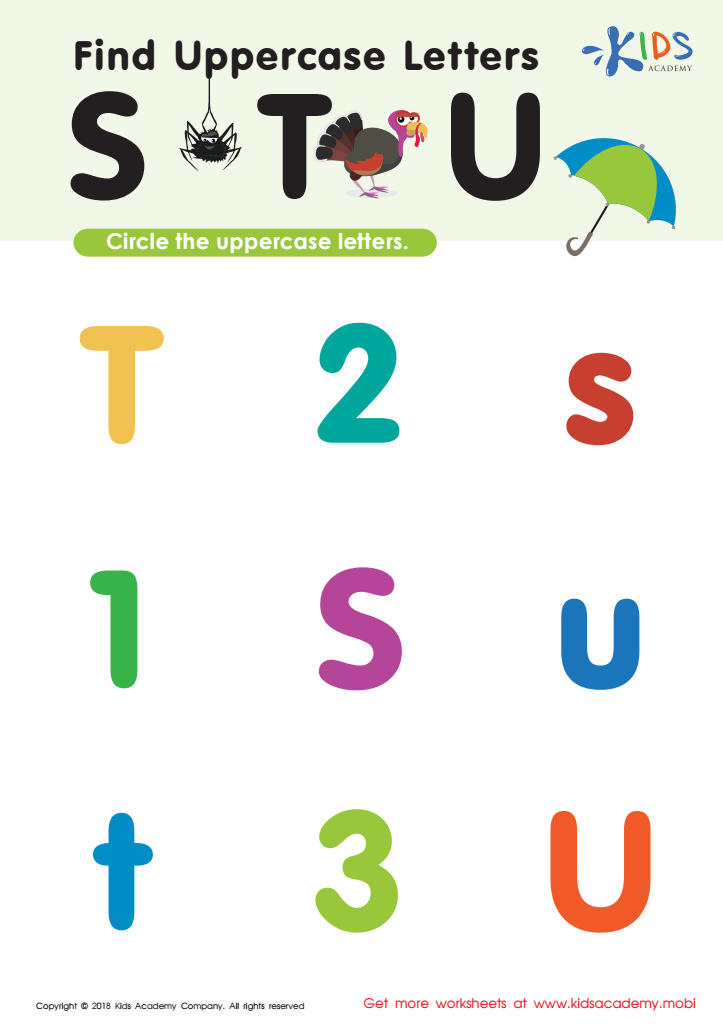

Find Uppercase Letters Worksheet
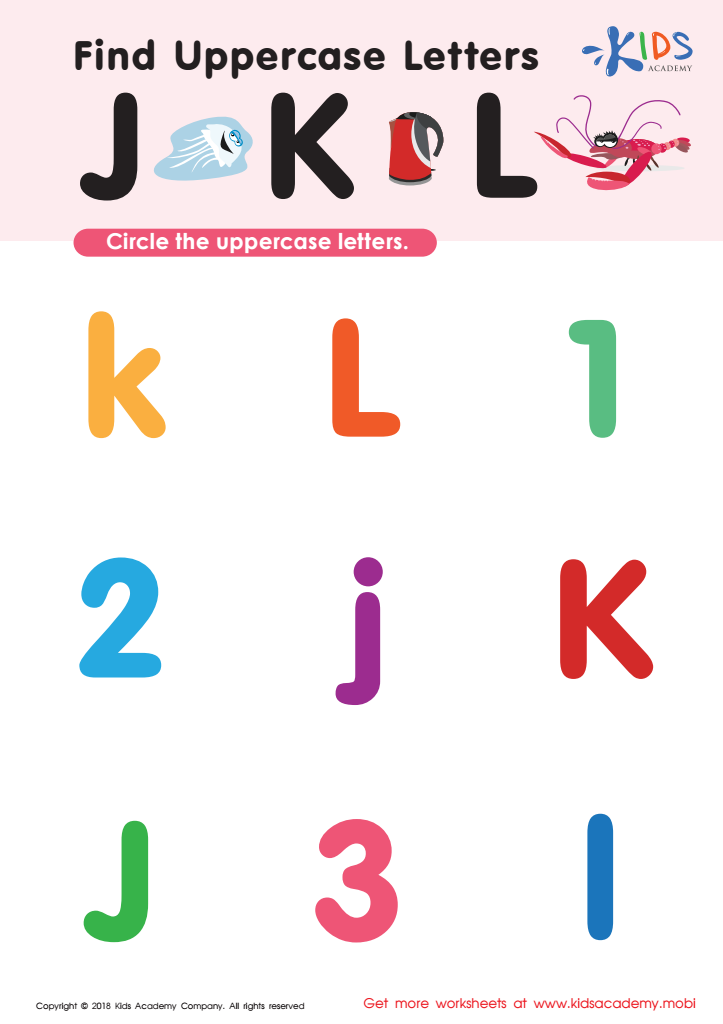

Find Uppercase Letters J, K, and L Worksheet
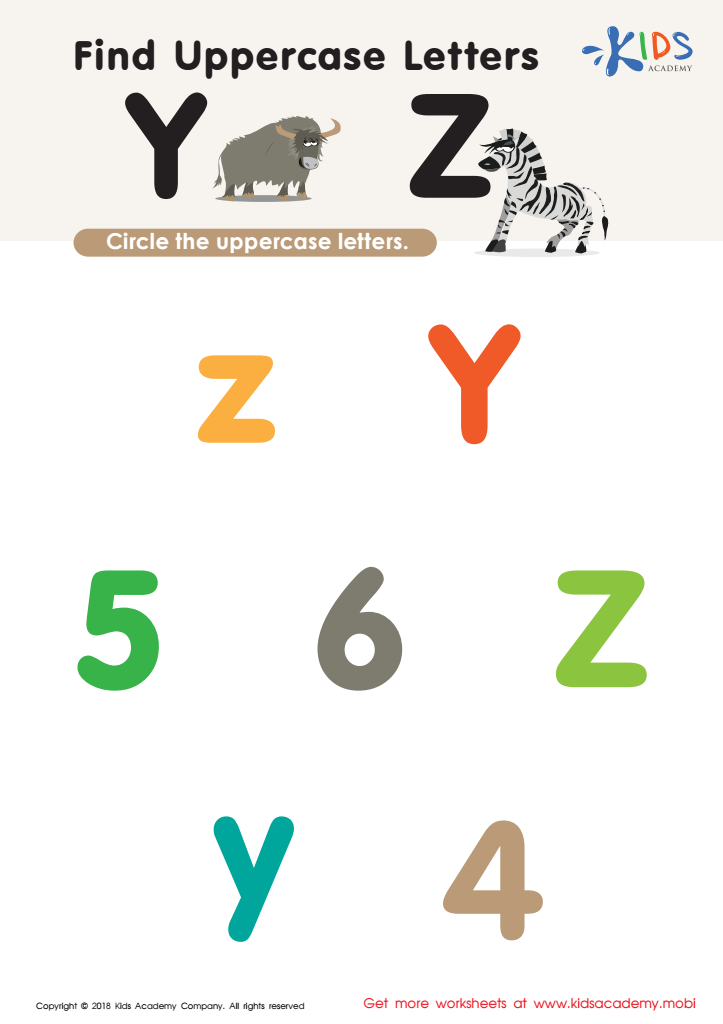

Find Uppercase Letters Y Z Worksheet
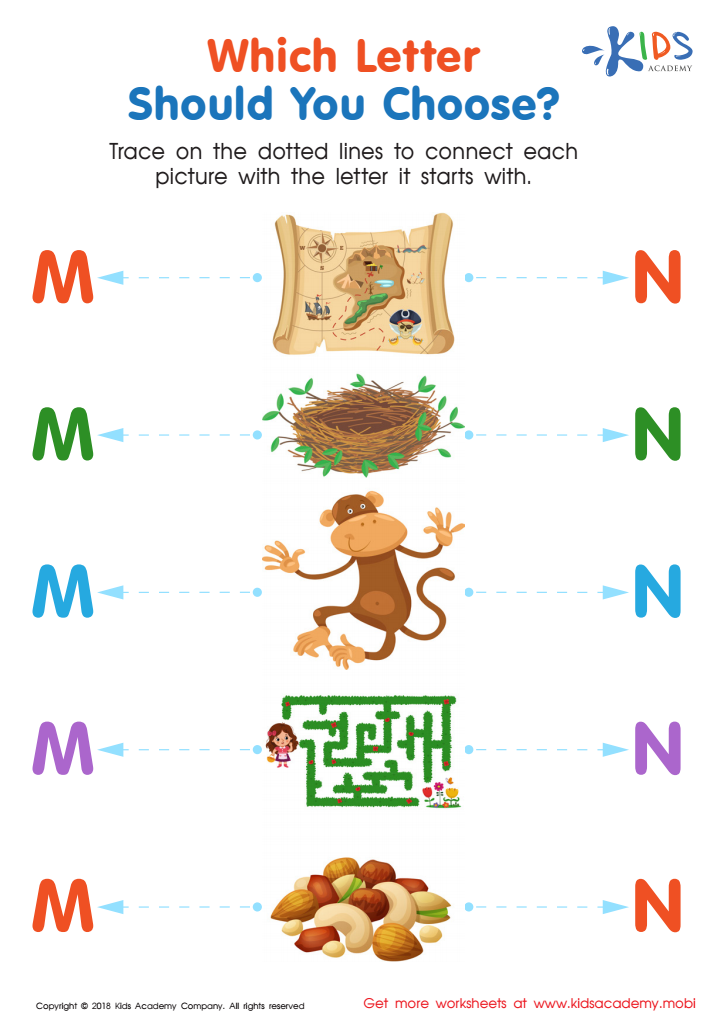

Which Letter Should you Choose? Worksheet
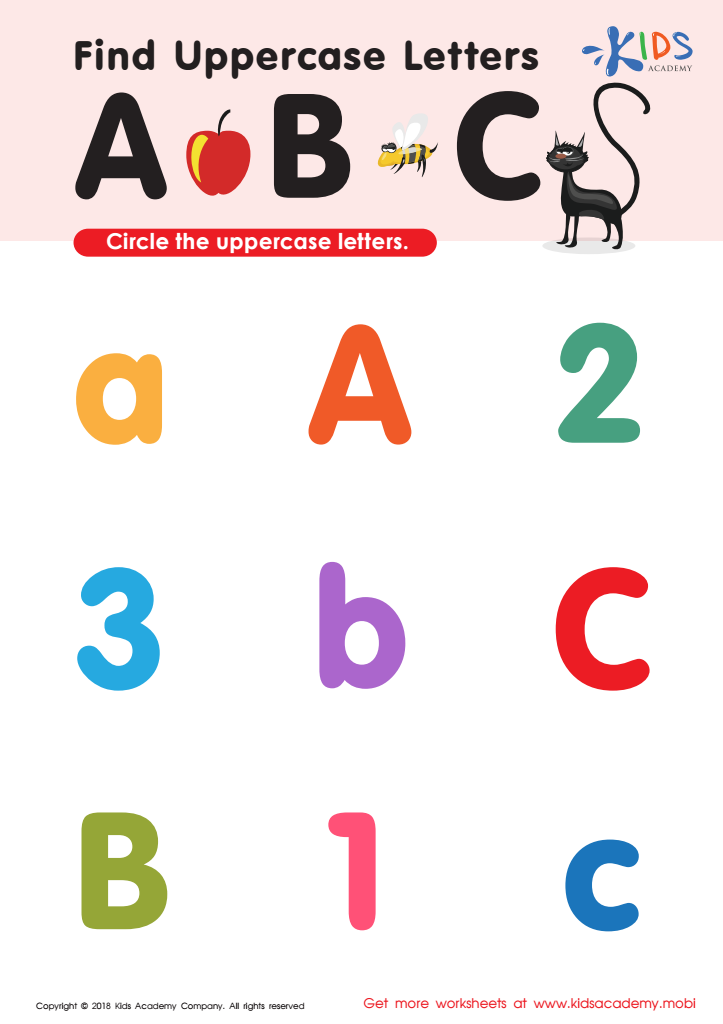

Find Uppercase Letters A, B, and C Worksheet
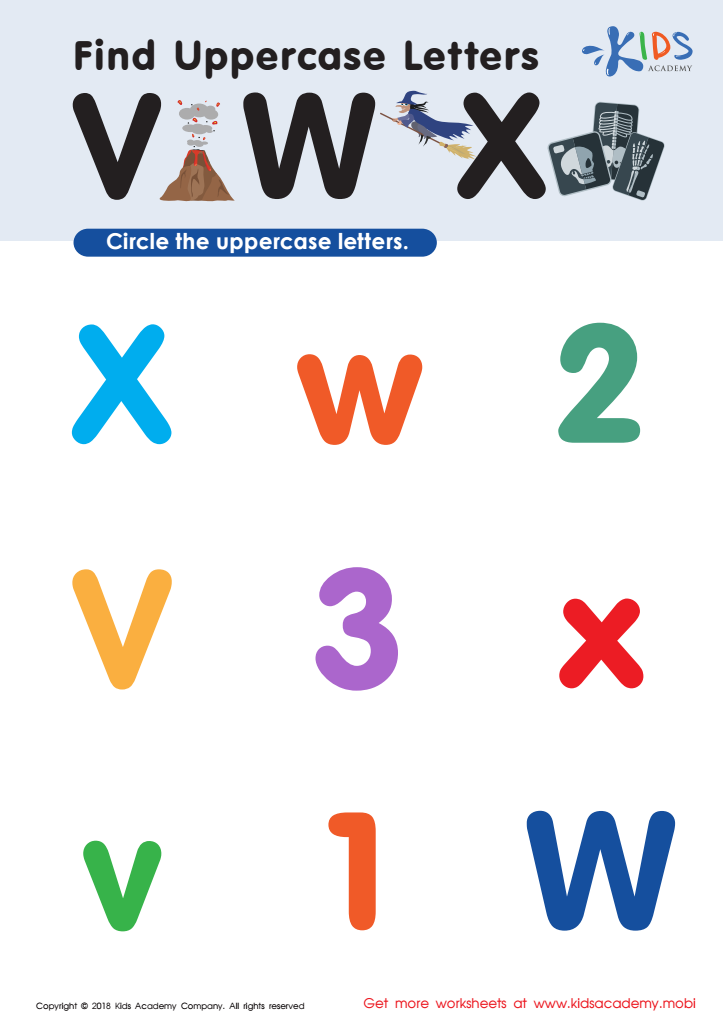

Find Uppercase Letters V, W, X Worksheet
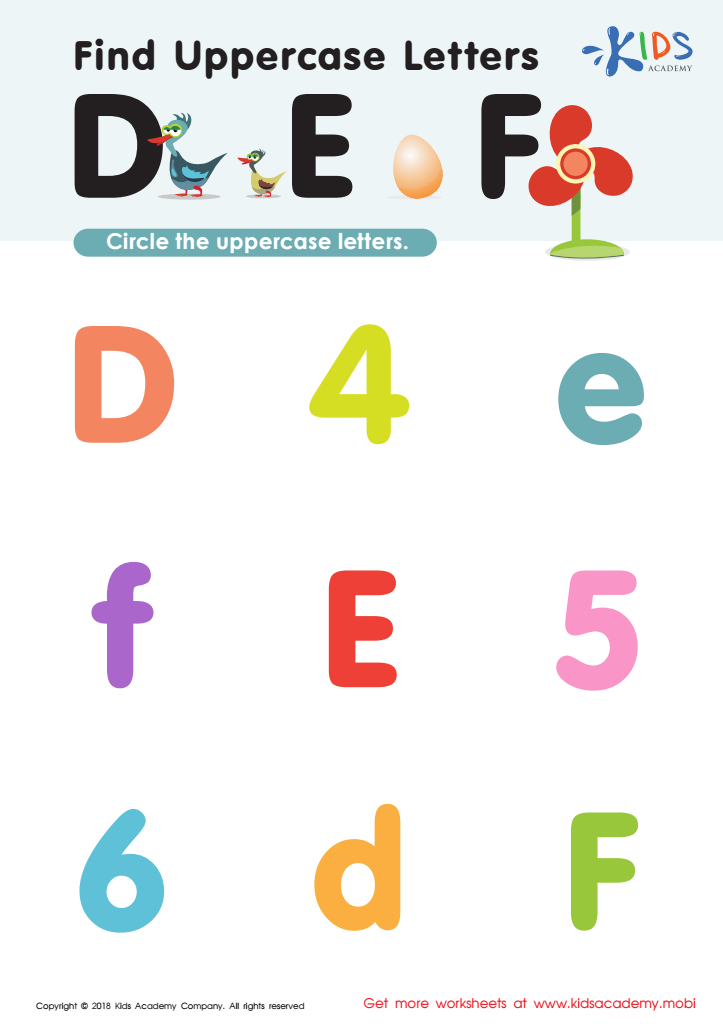

Find Uppercase Letters D, E, and F Worksheet
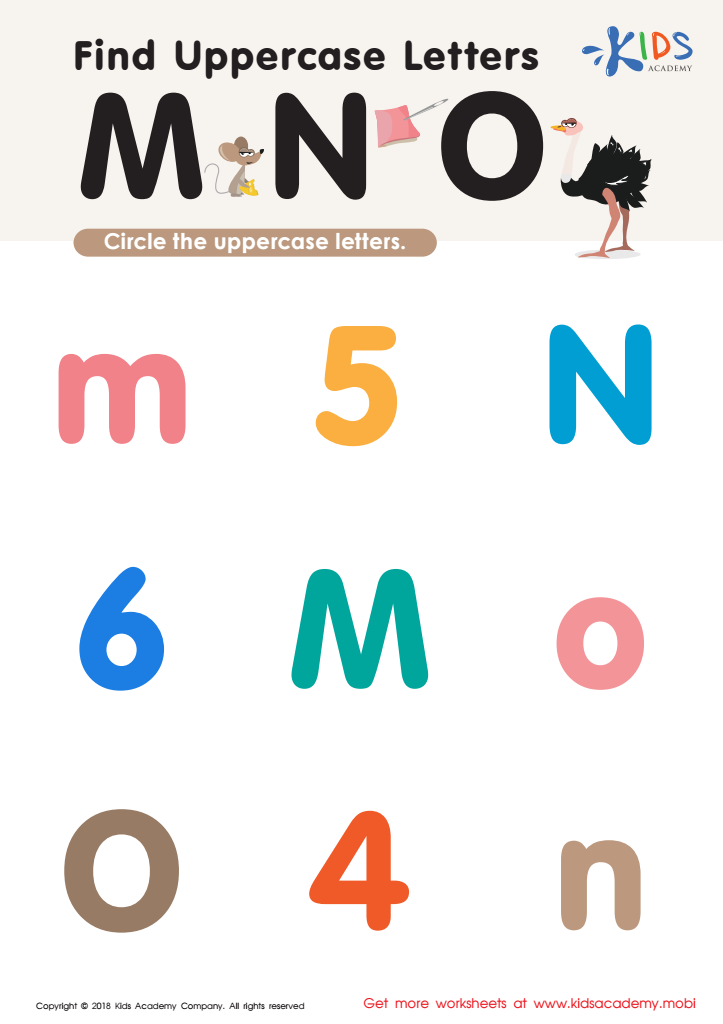

Find Uppercase Letters M, N, and O Worksheet
Letter recognition, specifically of uppercase letters, is a foundational skill for children aged 4 to 9 years old. This early literacy milestone is critical for several reasons. First, uppercase letters are often encountered first in print, whether in signs, books, or educational materials. Familiarity with these letters enhances a child's confidence and engagement with reading.
When parents and teachers prioritize letter recognition, they are setting the stage for phonics and spelling, which are pivotal for reading proficiency. By recognizing uppercase letters, children are better equipped to understand how words are formed and are more likely to decode and spell simple vocabulary as they progress.
Additionally, mastering uppercase letters aids in handwriting skills, offering a structured approach the correct form of these letters during writing exercises. This skill fosters handwriting legibility and spatial awareness, which are vital for communication in both academic and social contexts.
Encouraging letter recognition through playful activities and emotional support builds a child's enthusiasm for learning. Ultimately, the ability to recognize uppercase letters paves the way for successful literacy development, setting a strong academic foundation essential for future learning endeavors. Helpers encourage rich interactions with language, building essential everyday skills.
 Assign to My Students
Assign to My Students









